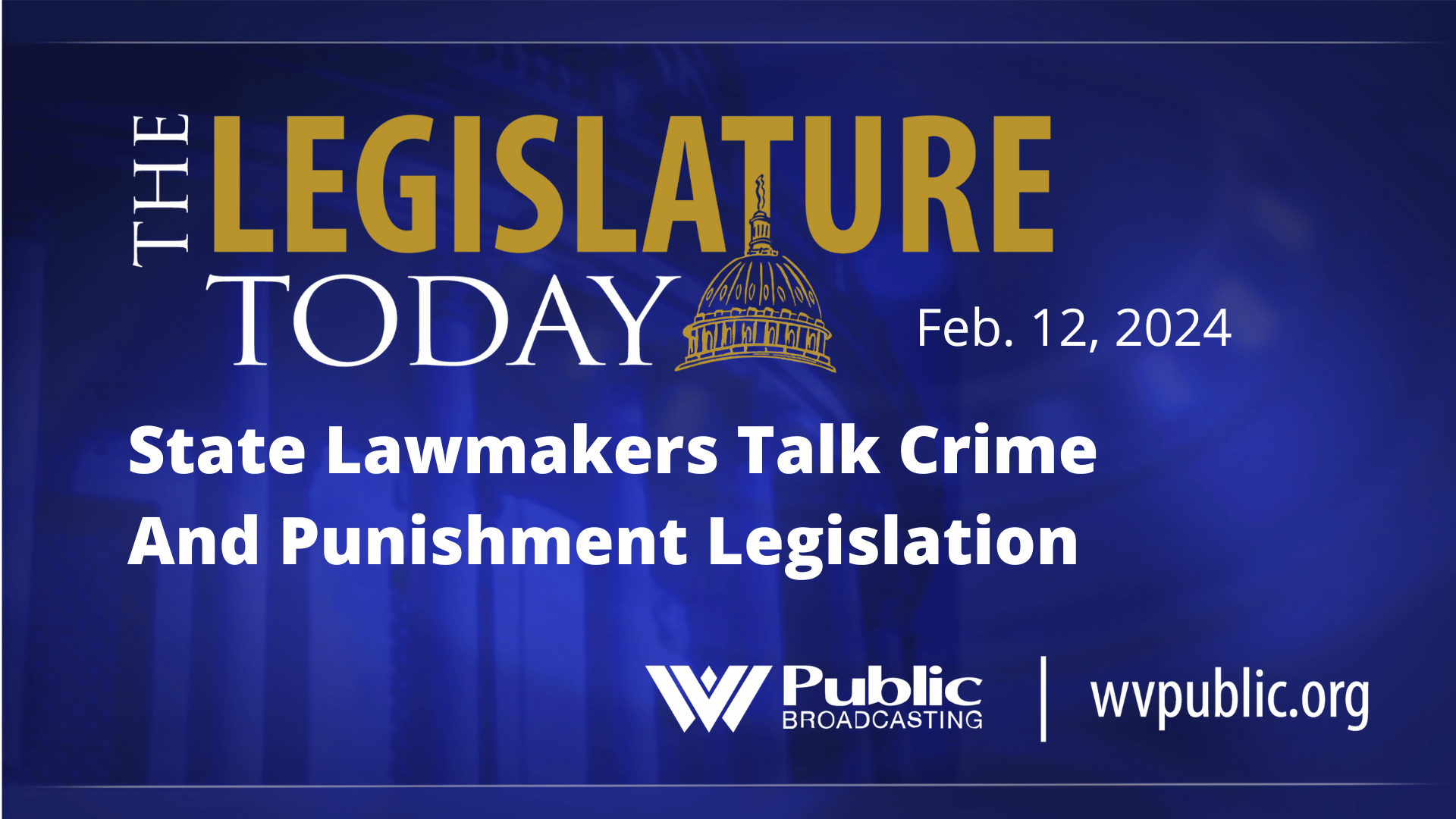On this episode of The Legislature Today, bills about crime and punishment come before the West Virginia Legislature every year. Often, they adjust punishment or even establish a new section of the state’s criminal code. Randy Yohe spoke with Del. Shawn Fluharty, D-Ohio, and Sen. Mike Stuart, R-Kanawha, and a former U.S. attorney.
Also, in the Senate, the chamber approved seven bills and sent them to the House. The body also advanced more than 20 other bills.
In the House, seven bills on third reading were sent to the Senate. The controversial House Bill 5243, so-called the “Women’s Bill of Rights,” was removed from the active calendar without announcement. It could be brought back at any time.
And, lawmakers heard from cancer patients, survivors and advocates during Cancer Action Day. Emily Rice has the story.
Finally, Bob Brunner spoke with representatives from the corrections department at the capitol, asking how things are going after legislative changes last year increased salaries and recruiting efforts for more officers.
Having trouble viewing the video below? Click here to watch it on YouTube.
The Legislature Today is West Virginia’s only television/radio simulcast devoted to covering the state’s 60-day regular legislative session.
Watch or listen to new episodes Monday through Friday at 6 p.m. on West Virginia Public Broadcasting.
